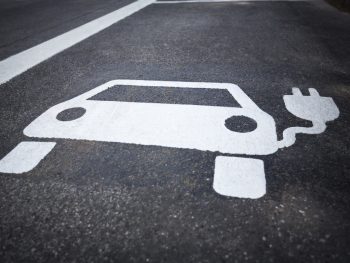Extra incentives for retail EV buyers vital in road to 2030, finds Auto Trader
Fleet and used buyer demand for battery electric vehicles (BEVs) may be robust but private driver interest is waning, prompting calls for further incentives to bolster demand.

Buyer interest in new BEVs has dropped by almost two-thirds – or 65% – since the beginning of 2022, according to Auto Trader‘s report
According to Auto Trader’s Road to 2030 Report, buyer interest in new BEVs has dropped by almost two-thirds – or 65% – since the beginning of 2022, due in part to the rising cost of living, higher borrowing costs and the well-documented hike in energy prices.
While Volkswagen, Tesla and Ford all have plans for affordable BEVs, the report shows the market for new EVs currently remains hampered by a lack of cheaper choices. And lower fuel prices and higher energy bills are also eroding the previous BEV advantage of lower running costs.
Latest SMMT stats show that while registrations of fully electric cars rose 18.6% in March, they only accounted for 16.2% of the market – almost the same as the 16.1% in March 2022. That’s significantly less than the 22% figure proposed for 2024 in the consultation on the ZEV mandate.
Consumer appetite for used EVs is in a far more robust position, with current (as of mid-April) levels of demand up 30% year-on-year (YoY), fuelled by greater numbers of used EVs entering the market. But with volumes growing at a faster rate than demand, used EVs are experiencing an expected, but significant price adjustment that’s seen prices fall 17% (to £31,767) in April so far on a YoY and like-for-like basis.
Ahead of the introduction of Vehicle Excise Duty on EVs in 2025, Auto Trader is calling for the Government to step in with a detailed programme of tax incentives to improve the affordability of BEVs and support the industry’s efforts in driving mass consumer adoption.
Its list includes fairer charging costs through equalising VAT on public and private charging; more incentives to make EVs affordable for all, such as reducing VAT on used EVs and lower or interest-free rates on EV financing deals; and initiatives to build both buyer and seller confidence in used EVs with a focus on battery health – as already spotlighted by the Vehicle Remarketing Association (VRA).
Other possible incentives include free parking and free charging in certain locations, as successfully used in other countries such as Norway and France, as well as further driver education.
Ian Plummer, commercial director, commented: “These are difficult times for the UK’s electric ambitions and we’re in danger of veering off-track. Although used electric demand remains buoyant, the wider EV market is in a precarious position. To avoid more than just a small pothole on the road to 2030, more information, more incentives, and more equality is urgently required.”
The Auto Trader report follows a call from the SMMT back in 2021 for increased incentives for private EV buyers, as the automotive trade body warned that consumer acceptance of BEVs remained low. Its own blueprint to deliver greater retail uptake – calling for government and stakeholders to deliver fairer incentives and a dramatically expanded public charging infrastructure.
Electric vehicle incentives: Learn from company car success
The BVRLA has welcomed the Auto Trader report, pointing out that the huge uptake of BEVs in the company car sector is a success story that provides a positive example of where incentives have driven uptake.
It’s called for a raft of targeted solutions to “bring all sectors and all drivers together on this journey”.
Gerry Keaney, chief executive, said: “This timely research from Auto Trader shows that there is a genuine risk of the company-provided vehicle sector becoming an outlier, not the trailblazer it has always proven to be. Retail and used buyers face testing barriers that are putting them off switching to EVs, with not enough support in place to ensure their first experience of owning an electric vehicle is a positive one. We know what those barriers are. Confusing communications, plus concerns over charging and cost of ownership risk thousands of drivers delaying their transition.
“Intervention is required to protect the long-term success of the market and enable a smooth transition to electric vehicles. We look forward to continuing our collaboration with the industry and policy makers, supported by real-world data and insights such as those published today.”
The RAC also concurred with Auto Trader’s findings.
Spokesman Rod Dennis said: “It’s clear that new, more affordable electric models like VW’s ID.2 can’t come onto the new car market soon enough. As things stand, the demand from drivers for EVs is there but without greater financial assistance there’s a risk many will simply hold onto their older vehicles for longer.
“The fact around a third more electric cars in the UK are registered to businesses than to private individuals, with growth of the former outpacing the latter, shows just how much of an incentive the low company car tax rate has proved to be. It’s a shame the Government isn’t looking at introducing a grant to help stimulate the cheaper end of the EV market to help drivers who don’t have company cars get into EVs.”












